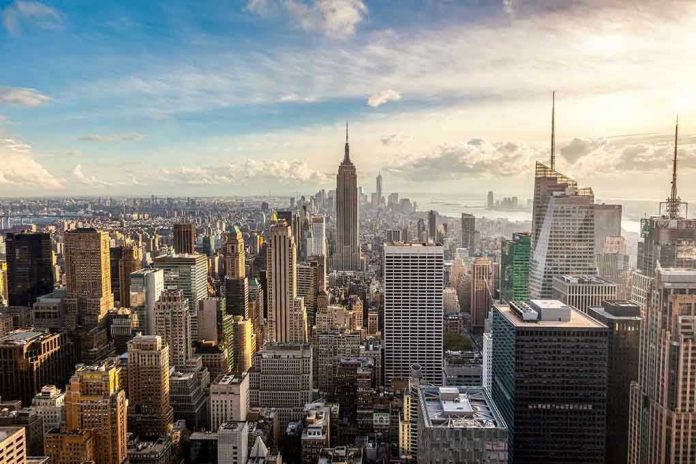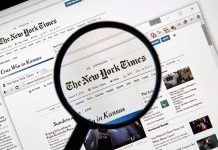
Mayor Eric Adams and the NYC Health Department’s proposal to slash the number of liquor stores signals a new front in government overreach, sparking alarm among small business owners and defenders of personal liberty.
Story Highlights
- NYC officials are considering reducing liquor store density as a public health intervention.
- Policy echoes historical temperance movements, raising questions about individual freedom and economic impact.
- Business owners and civil liberties advocates warn of loss of jobs, revenue, and increased government control.
- Proposal remains in discussion, but could set precedent for future regulatory overreach.
NYC Targets Liquor Stores Amid Public Health Push
In early 2025, the New York City Department of Health publicly recommended cutting the number of liquor stores across the city, framing this move as a strategy to curb alcohol abuse and related health problems. Mayor Eric Adams has voiced support for a broader public health and safety agenda, though he stopped short of detailing specific liquor store reductions in his recent State of the City address. The scale of the proposal stands out, targeting one of the largest urban alcohol markets in America, and has ignited a heated debate about the balance between government intervention, health goals, and economic freedom.
Historical Roots and the Modern Temperance Echo
New York City’s dense concentration of liquor outlets has long been linked to neighborhood safety and public health concerns, particularly in lower-income areas. The city has a history of alcohol regulation dating back to Prohibition, but this latest initiative draws sharp comparisons to the temperance movements of the early 20th century. Unlike outright prohibition, the current proposal is positioned as a preventive health measure, yet critics argue it risks repeating past mistakes of excessive government control over personal choices and market operations. Recent advocacy for limiting retail alcohol availability builds on post-pandemic anxieties, with officials citing increased rates of substance abuse and neighborhood violence.
Stakeholder Divide: Business Owners vs. Public Health Advocates
The proposed policy has created deep divisions among stakeholders. Liquor store owners and industry groups fear devastating economic losses, job cuts, and uncertain futures for small businesses already struggling to recover from the pandemic. Health advocates and some community organizations, on the other hand, support the initiative, citing evidence that high liquor store density correlates with greater consumption, addiction, and health issues. The New York City Council holds legislative power over alcohol policy changes, and debate among its members reflects broader tensions between economic vitality and public health priorities. Civil liberties advocates have also raised alarms about government overreach and infringement on personal freedoms, echoing conservative concerns about regulatory excess.
Economic and Social Impacts: Who Pays the Price?
Should the proposal move forward, short-term effects may include a freeze on new liquor store openings and heightened uncertainty for existing retailers. Longer-term impacts could see shifts in neighborhood dynamics, changes in crime rates, and possible improvements in public health metrics. However, these gains come at a cost: potential declines in city tax revenues, loss of private sector jobs, and the specter of black market activity if legal access is restricted. The policy’s fate could become a flashpoint in upcoming elections, as candidates vie for support from both health advocates and business communities wary of further government intervention.
NYC eyes cutting number of liquor stores to curb health-threatening booze abuse https://t.co/njxixXcjH2
— ConservativeLibrarian (@ConserLibrarian) September 3, 2025
Expert Perspectives and Future Outlook
Public health experts broadly support reducing alcohol outlet density, pointing to research linking it to lower rates of addiction and chronic disease. Yet, economists and industry experts caution against unintended consequences, such as driving alcohol sales underground or disproportionately impacting low-income communities. Academic studies underscore that policy success hinges on careful implementation and enforcement, factors that have led to mixed results in other cities. For now, the proposal remains in the stakeholder consultation phase, with no formal legislation or citywide moratorium enacted. The coming months will reveal whether New York’s approach becomes a model for other cities—or a cautionary tale of regulatory overreach and economic disruption.
Sources:
NYC eyes cutting number of liquor stores to curb health-threatening booze abuse
NYC Mayor Eric Adams insists he isn’t ending his liquor store crackdown













